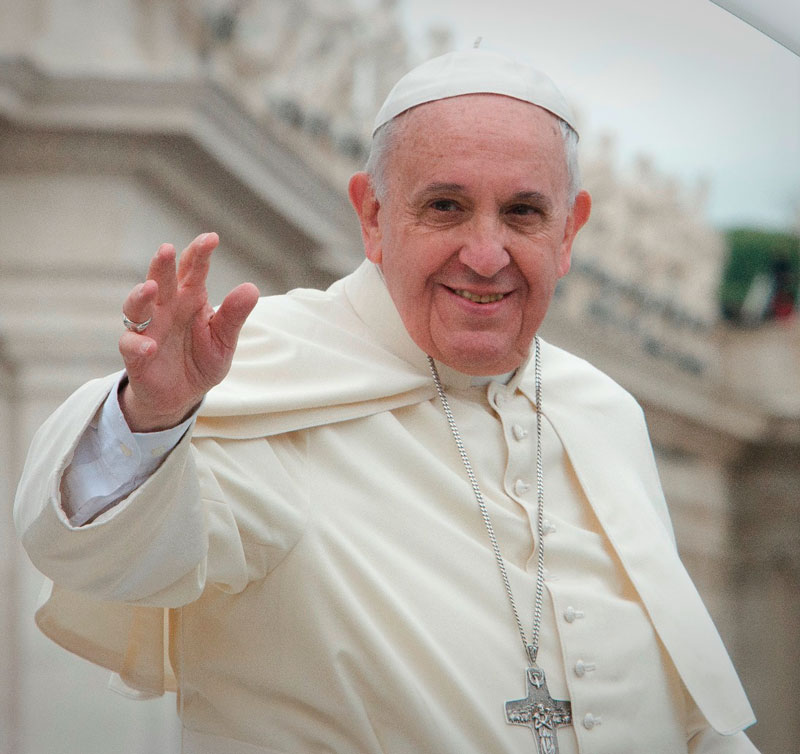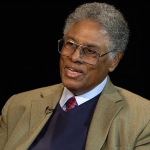 To provide a synthesis of Pope Francis’s thinking on the economy is both difficult and easy. It is difficult, because he has never offered extensive and systematic reflections on such questions; his pronouncements are found here and there, inseparable from a broader moral and spiritual message.
To provide a synthesis of Pope Francis’s thinking on the economy is both difficult and easy. It is difficult, because he has never offered extensive and systematic reflections on such questions; his pronouncements are found here and there, inseparable from a broader moral and spiritual message.
At the same time, he has said quite a few things about economic questions, and he is deeply interested in economic values and outcomes. Of course, he views them not as isolated technical questions, but as something that also touches upon a Christian pastor of souls. That is what makes my task relatively easy.
Francis’s thinking can only be understood within the context of his moral and spiritual principles. These, in turn, are inseparable from his simple and straightforward personality. I will leave it to others to study specific texts in detail; I will simply summarize the Pope’s message around the notion of Christian poverty. Perhaps we could almost say that Francis is a prophet of Christian poverty, and his papal name is no accident in this respect.
What I mean by this is two-fold, insofar as the Christian understanding of poverty necessarily entails two different dimensions. First, there is the attitude towards the poor. We might also call it the social and charitable dimension, which highlights the calling to exercise not only justice but also efficacious charity towards those in need. This has always been a fundamental dimension of Christian ethics, and we find it insisted upon in Evangelii Gaudium.
Concerning the principles cherished by liberal economists, the papal document does also acknowledge the value of private property and of the “noble vocation” of entrepreneurship, as long as they are seen in a broader framework and inspired by ethical values. Evangelii Gaudium repeatedly rejects the idea of an “absolute autonomy” of the marketplace not governed by laws and morals. It is critical not only of those who use the markets for selfish purposes, but also of those economists that tend to look at poverty as a secondary problem that should be resolved almost automatically as a side-product of economic growth.
In a much-cited passage, he laments: “How can it be that it is not a news item when an elderly homeless person dies of exposure, but it is news when the stock market loses two points?” What troubles the Pope is not the stock market itself, but the tendency to direct our attention to it in a way that turns it into a new idol, and to show practical indifference towards the plight of so many human persons.
There is, however, another dimension in Francis’s message, which I will argue is fundamental for understanding his thinking as a whole. When it is ignored, the social dimension cannot be fully understood. This second dimension is the more interior and spiritual dimension, namely poverty as a Christian virtue.
We find this ideal towards the very beginning of Evangelii Gaudium. In an important passage that laments the problem of consumerism, the Pope takes the question to a deeper level and argues that “the great danger” of our time “is the desolation and anguish born of a complacent yet covetous heart, the feverish pursuit of frivolous pleasures, and a blunted conscience.” This is not just a private issue, because it has profound consequences for our social and religious life: “Whenever our interior life becomes caught up in its own interests and concerns, there is no longer room for others, no place for the poor. God’s voice is no longer heard, the quiet joy of his love is no longer felt, and the desire to do good fades.”
This message is, I think, at the heart of Francis’s thinking and mindset concerning the economic sphere. We find it repeatedly in his personal preaching such as the morning Mass homilies, which in fact rarely focus on the social aspect of poverty. In his homilies he insists, for example, on detachment from temporal goods and on the battle against worldliness; on the relationship between spiritual poverty and praise of God; and on the search for the true treasure. We find the same idea in statements surrounding the theme of reform of the Roman Curia: the Pope is not so much interested in institutional reforms as he is in the fidelity of the servants of the Church to the spirit of the Gospel, which includes material detachment and poverty of spirit.
The two dimensions are intimately connected, of course. The social dimension of justice and charity towards the poor can only be effective when there is an interior commitment to treat temporal goods as gifts that ultimately come from God and belong to Him. According Francis, moreover, the relationship goes the other way around, too. There is true charity only when it is accompanied by acts that establish a personal connection with the person in need: “Tell me, when you give alms do you look into the eyes of the man or woman to whom you give alms? … And when you give alms, do you touch the hand of the one to whom you give alms, or do you toss the coin?”
The Pope has explicitly disassociated himself from what he calls pauperism. Moreover, regardless of the specific methods of helping the poor, to Francis, the key issue is not institutional philanthropy, but the divine call to come out of oneself. It is not so much a question of giving material goods to the poor, as of giving oneself.
This is what helps to restore the dignity of the poor: not things alone, but the personal touch and contact that recognize them as truly human persons.
Originally published at Acton Commentary
Photo credit: Jeffrey Bruno












